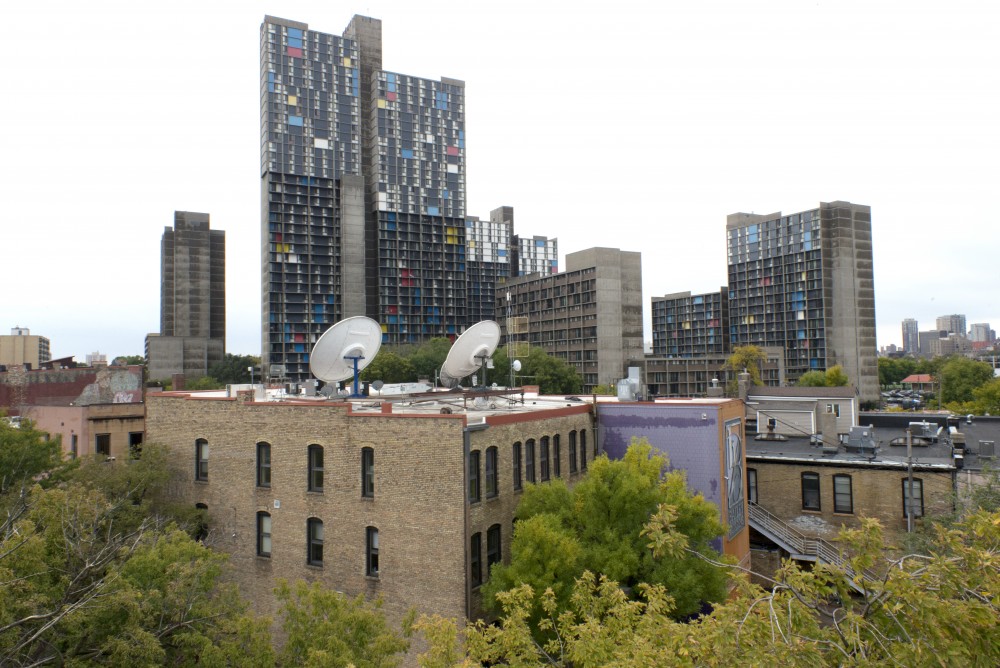A proposed neighborhood livability initiative is seeing pushback from Cedar Riverside residents concerned with its cost.
The movement to classify West Bank as a special services district aims to promote safety and livability in the neighborhood through community liaisons. But some property owners are unhappy with the increased taxes associated with the program.
The program requires support from 65 percent of local business owners before it can be presented to the city by the Cedar Riverside Partnership.
“They’ll never get it through because people aren’t going to sign to get their taxes increased,” said Midwest Mountaineering owner Rod Johnson. “And we have to focus on running our businesses really well and not trying to get involved in this political stuff. So I resent that, that I have to go through all this work to fight this property tax increase when I should be running my business instead.”
Johnson attended a CRP meeting this month to hand out flyers expressing opposition to the initiative. Johnson said he has collected signatures from 11 property owners on the West Bank who are opposed to the tax increase. The classification received similar opposition in 2012 when it was proposed by the West Bank Business Association.
“It just doesn’t make economic sense for us,” said Jim White of Fine Associates, which manages properties in Cedar Riverside. “The other owners that are out there that are supportive [and] were supportive last time were big nonprofits. Well, they don’t pay the same taxes that we do.”
White said it doesn’t seem cost-effective to put money into community liaisons who are responsible for neighborhood care, like shoveling snow. Property owners are already responsible for those things said West Bank resident David Markle. He expressed similar concern and opposition to the classification in an October Minnesota Daily letter to the editor.
Markle said Cedar Riverside is a low-rent neighborhood, unlike other special services districts like Dinkytown and Stadium Village. He said the designation could drive rents up for local businesses.
“This would be reflected in a rent increase by most of their landlords if there was an additional, in effect, tax for the proposed business improvement district,” Markle said. “The businesses already have certain responsibilities … and that they do not have the responsibility, in particular, for being singled out [in] this way to pay for other problems of the neighborhood.”
Ward 6 Council member Abdi Warsame has previously expressed support for the classification, citing its potential to promote safety and neighborhood improvements.
“What you need is continuity, you need continuous work,” Warsame told the Daily in October. “So you clean up the neighborhood, you have people on the ground, you know.”














